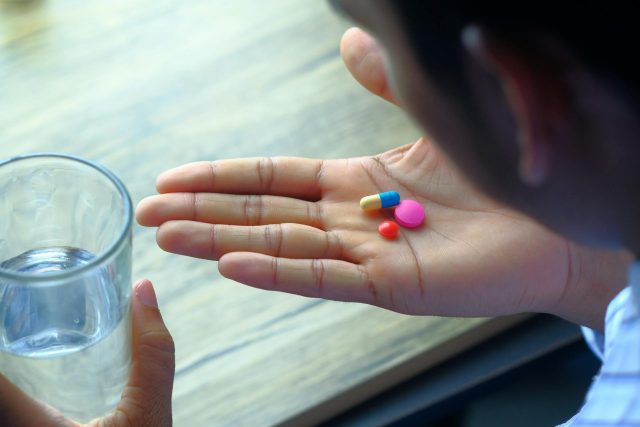Think more pills mean faster relief? Not always. Learn how high doses affect your body and why more medicine isn’t always better—or safe.
Introduction:
You wake up. Head pounding. That familiar ache creeping back. You reach for your meds. But wait—what if you take two pills instead of one? Maybe it’ll work faster. Right?
That’s a thought many of us have had. More = faster. Seems logical.
But here’s the catch. Medicines don’t work like that. Not always. Sometimes, more can mean danger.
This article? We’ll break it down. We’ll explore how dosing works, what the “high dose effect” really means, and why more medicine can sometimes backfire. Whether you’re a curious patient or a med student just starting out—this one’s for you.
What Is the “High Dose Effect”?
Let’s keep it simple.
High dose effect means what happens when you take more than the standard dose. Sometimes it speeds things up. But often? Not in a good way.
See, every medicine has a sweet spot. A range where it works best. Below that? Might not do much. Above that? Side effects kick in. Or worse.
Some meds—like painkillers or antihistamines—might seem harmless in higher doses. But even they have limits. Too much, and your body might respond unpredictably. Like a switch flipped the wrong way.
So no, popping extra pills doesn’t always mean quicker relief. In fact, it might slow healing down.
The Science of Dosage
Doctors don’t pick doses at random. There’s science behind it. Years of trials, tests, tweaking. To find the right amount.
Here’s why:
- Absorption: Your body can only absorb so much at a time. Extra doesn’t always equal more in the bloodstream.
- Half-life: Meds stay in your body for a certain time. More pills might just hang around longer—not faster.
- Therapeutic window: That’s the magic zone. Below it? No effect. Above it? Toxic.
Go too high? You fall out of the window. Fast.
Some drugs build up in your system. Others get flushed out quick. It’s complex. That’s why dosing matters.
Causes and Risk Factors of Overmedicating
Why do people take more than they should? Well…
- Desperation: Pain or discomfort makes us impatient.
- Misunderstanding: Thinking more means faster.
- Internet advice: Not always accurate.
- Mixing meds: Taking multiple without realizing overlap.
- Self-dosing: Skipping the doctor. Trusting instinct.
Some groups are more at risk:
- Elderly (memory issues, multiple prescriptions)
- Teenagers (impulsiveness)
- Chronic illness patients (tolerance building)
It’s not always about being careless. Sometimes it’s just confusion.
Signs and Symptoms of Overdose
Spotting an overdose early can save lives. Here’s what to watch for:
- Nausea or vomiting
- Confusion or dizziness
- Rapid heartbeat
- Breathing issues
- Blurred vision
- Fainting
- Seizures
If someone suddenly feels “off” after extra medication? Act fast. Call for help.
Diagnosing an Overdose or High Dose Effect
Doctors use a few key tools:
- Patient history: What and how much was taken?
- Blood tests: To check levels of drugs.
- Urine tests: Some meds show up here too.
- ECG: Especially if heart meds are involved.
- Imaging or scans: If there’s organ damage suspected.
Sometimes, the person can’t talk. Then doctors rely on symptoms, empty pill bottles, or family info.
Treatment Options for Overdose or High Dose Effects
Depends on the drug. And how much.
Common treatments include:
- Activated charcoal: Binds to the drug in stomach
- Antidotes: Some drugs have specific reversal agents
- IV fluids: Help flush the system
- Oxygen support: For breathing issues
- Stomach pumping: In extreme cases
But prevention? That’s always better.
Preventing the High Dose Mistake
Want to avoid this mess? Here’s what helps:
- Read labels. Every time.
- Stick to schedule. Set reminders if needed.
- Don’t double up. Even if you “forgot” earlier.
- Ask a pharmacist. When in doubt.
- Don’t mix meds. Unless your doc says so.
One tip? Keep a med log. Write down when and what you took. Super useful.
Lifestyle Tips: Managing Pain or Symptoms Without Overdosing
Sometimes, meds aren’t the only answer. Or they need backup.
Try these:
- Stretch and move. For joint or muscle pain.
- Heat or cold packs. Easy, natural relief.
- Hydration. Simple, but powerful.
- Mindfulness or breathing. Calms the body.
- Proper sleep. Helps recovery.
Talk to your doctor about combining meds with non-drug strategies. Works well.
What If You Already Took Too Much?
Mistakes happen. Don’t panic. But act.
- Call poison control. Or emergency services.
- Don’t wait for symptoms. They can come late.
- Don’t make yourself vomit. Unless a doctor says so.
- Keep med info nearby. For responders.
Stay calm. Get help.
Complications from High Doses
So what’s the damage?
- Liver injury – from acetaminophen
- Kidney failure – from NSAIDs or antibiotics
- Bleeding – from blood thinners
- Heart issues – from stimulants or BP meds
- Seizures – from antidepressants or others
Some effects are short-lived. Others? Permanent.
Real Case: Ali’s Cough Syrup Story
Ali. 25. Had a cold. Wanted it gone by morning.
Took double dose of cough syrup. Slept it off. Woke up dizzy. Heart racing.
Rushed to ER. They managed it. But he learned something big:
More medicine? Not faster. Just riskier.
Now he checks his doses. Every time.
When to See a Doctor
Some symptoms need urgent care:
- Chest pain
- Difficulty breathing
- Slurred speech
- Seizures
- Sudden confusion
If in doubt? Go.
Better to be safe than sorry.
Recent Research: High Dose Risks
Studies show overdosing doesn’t usually help.
A 2023 study on pain meds showed doubling ibuprofen didn’t reduce pain faster. But side effects? Doubled.
Newer AI tools are being tested. To personalize dosing. That’s the future. Smart, safe, tailored.
FAQ: Common Questions on High Dose Effect
- Does a higher dose work quicker? Not always. May increase risk instead.
- Can I double up if I miss a dose? Usually no. Follow your doctor’s advice.
- Are all drugs dangerous in high doses? Most are. Some more than others.
- What should I do if I took too much accidentally? Call poison control or your doctor immediately.
- Is overdose always obvious? Not really. Some signs come late.
- How are safe doses decided? Through clinical trials and long-term research.
- Can vitamins be overdosed too? Yes. Especially fat-soluble ones like A, D, E, and K.
- Will taking more antibiotics clear infection faster? No. It may harm gut bacteria or cause resistance.
- Can herbal supplements have high dose effects? Yes. Natural doesn’t mean safe in excess.
- Can children handle smaller overdoses? No. Even small amounts can be serious in kids.
Final Thoughts
More medicine? Not the answer.
Stick to the prescribed amount. Always. Trust your doctor, not your impulse.
Because faster relief? It’s not worth the risk.
Your body deserves care. Not a chemical overload.
MedicinesExplained — Because how much you take… matters.









